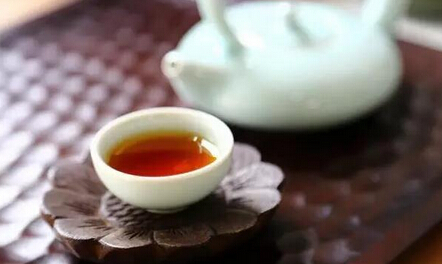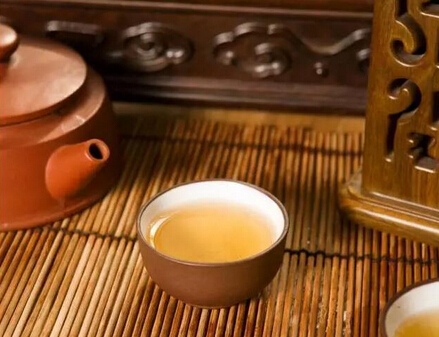
We know that drinking tea is beneficial for physical and mental health. It can be enjoyed leisurely, served to guests, or used to uplift the mood during both joyful and melancholic moments. Tea promotes health, and savoring it is akin to savoring life! Here, we particularly remind the following groups of people to make tea a regular habit!
1. Frequent drinkers
In China, alcohol culture has a long history, and alcohol is closely tied to people's lives. In modern social interactions, alcohol serves as a medium for communication, playing a unique role in welcoming guests, gathering friends, and fostering connections. As the saying goes, "No banquet is complete without wine," and drinking has become an unavoidable part of adult life. While moderate drinking can be beneficial, excessive long-term consumption can lead to liver and stomach damage, nervous system paralysis, and other health issues.
Alcohol harms the body, but sometimes drinking is unavoidable. How can we reduce its damage? Tea contains amino acids, alkaloids, sugars, vitamins, proteins, and enzymes, many of which help counteract alcohol's effects. For example, tea saponins inhibit alcohol absorption and alleviate liver damage; tea sugars protect the liver; tea dilutes alcohol and promotes gastrointestinal motility to reduce absorption; and tea's diuretic properties help expel alcohol from the body.
While tea aids in sobering up, the choice of tea matters. Pu-erh tea is often recommended. During alcohol metabolism, the body requires large amounts of vitamin C, which is abundant in fermented Pu-erh tea. The warm nature of Pu-erh forms a protective layer on the stomach lining, and its high soluble sugar content enhances its sobering effects. However, the tea should not be too strong, as excessive caffeine may increase heart rate and worsen headaches.
2. Smokers
Unlike alcohol, smoking is entirely harmful, leading to brain diseases, cardiovascular issues, cataracts, cancer, and more. Tea can help mitigate some of this damage in three ways: First, it reduces the risk of smoking-induced cancer. Tea polyphenols inhibit free radicals and cancer cell growth. Second, tea lessens radiation pollution from smoking. Tea catechins and polysaccharides protect against radiation and support bone marrow function. Third, tea prevents smoking-related cataracts. Tea's high carotene content safeguards vision and counters nicotine toxicity.
3. Night owls
Late-night work, gaming, or parties often lead to missed sleep, harming digestion, vision, skin, and mental health. Tea's caffeine stimulates the central nervous system, sharpening focus and boosting circulation. A cup of tea can relieve stress and refresh the mind.
4. Screen users
With the rise of electronics, prolonged screen exposure dulls skin and strains eyes. Tea's polyphenols, vitamin C, and carotene reduce radiation damage and protect vision. Office workers and heavy screen users should adopt tea as a healthy habit.
5. Those with digestive issues
Different teas suit different constitutions. Mild teas like Pu-erh and black tea coat the stomach, protecting it and aiding digestion. Regular consumption improves gut health and immunity.
6. People with cold/damp constitutions
Those with poor circulation or dampness often feel fatigued or cold. Warm teas like Pu-erh or black tea enhance blood flow and dispel dampness through diuretic effects.
7. Beauty seekers
Tea's antioxidants outperform vitamins C and E, slowing aging. Its compounds also reduce oil, shrink pores, and protect against UV damage. Tea aids fat metabolism, supporting weight loss, as noted in ancient texts. It also strengthens teeth and hair, making it a simple, effective beauty regimen.
